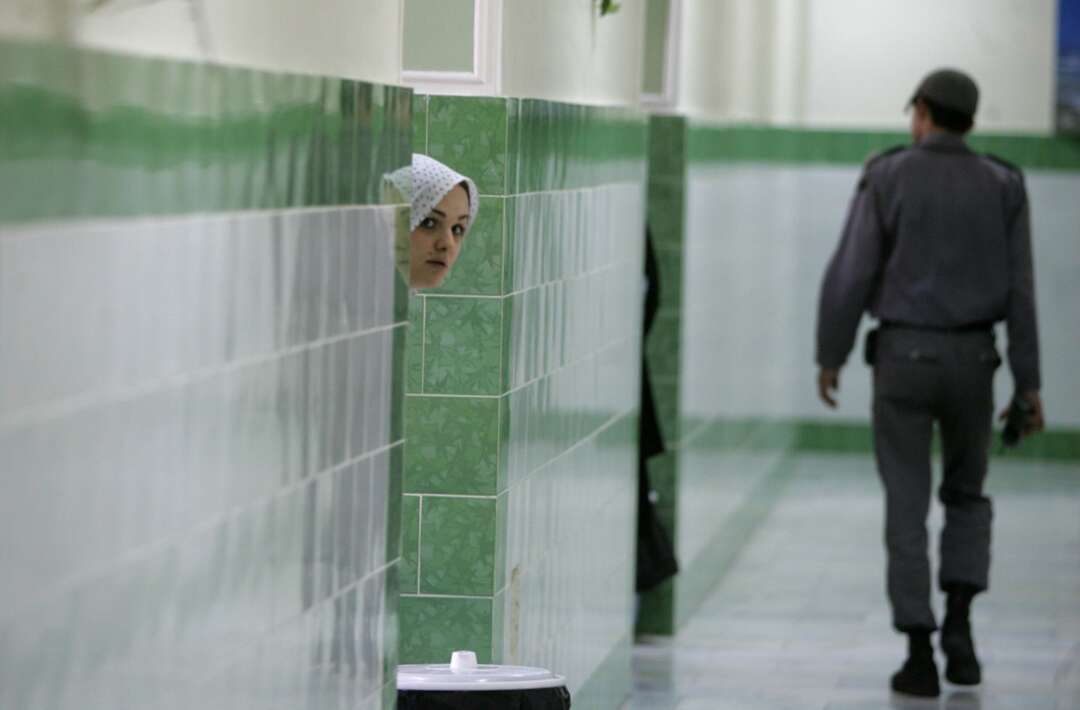-
Italian Journalist's Harsh Experience Reveals Continuation of Iranian Hostage Diplomacy
-
The Italian journalist's testimony reveals the Iranian regime's continued use of foreign civilians as bargaining chips despite apparent changes in its political leadership

Italian journalist Cecilia Sala (29) detailed horrifying details about her detention period in Iran's Evin prison in an interview with the "New York Times," which ended in an exchange deal with Iranian engineer Mohammad Abedini, accused of smuggling drone parts used in killing American soldiers.
Sala explained that her visit to Iran came after Pezeshkian's rise to presidency, where "Revolutionary Guard intelligence agents stormed her hotel room in Tehran" on December 19th, and transferred her blindfolded to Evin prison, confirming that she "feared from the moment of her arrest that she would be held hostage for an exchange deal."
Sala narrated details of her suffering in prison, where she was forced to wear prison clothes and her glasses were confiscated. She was placed in a cell lacking basic comforts, under constant lighting that prevented sleep, while being subjected to interrogations while blindfolded.
Sala pointed to experiencing severe psychological pressure, hearing sounds of other prisoners' suffering, expressing her fears of psychological breakdown by saying: "I entered prison as a human, but I will leave as an animal."
Sala's ordeal continued until January 8th, when she was released as part of an exchange deal, while an Iranian official revealed Elon Musk's role in the release process, which Musk himself confirmed on the "X" platform.
Analysts confirm that Sala's case reveals Iran's continued practice of "hostage detention diplomacy" as a means of pressuring the West, despite claims about changing political approach with President Pezeshkian's rise to power.
Levant-Agencies
You May Also Like
Popular Posts
Caricature
BENEFIT Sponsors BuildHer...
- April 23, 2025
BENEFIT, the Kingdom’s innovator and leading company in Fintech and electronic financial transactions service, has sponsored the BuildHer CityHack 2025 Hackathon, a two-day event spearheaded by the College of Engineering and Technology at the Royal University for Women (RUW).
Aimed at secondary school students, the event brought together a distinguished group of academic professionals and technology experts to mentor and inspire young participants.
More than 100 high school students from across the Kingdom of Bahrain took part in the hackathon, which featured an intensive programme of training workshops and hands-on sessions. These activities were tailored to enhance participants’ critical thinking, collaborative problem-solving, and team-building capabilities, while also encouraging the development of practical and sustainable solutions to contemporary challenges using modern technological tools.
BENEFIT’s Chief Executive Mr. Abdulwahed AlJanahi, commented: “Our support for this educational hackathon reflects our long-term strategic vision to nurture the talents of emerging national youth and empower the next generation of accomplished female leaders in technology. By fostering creativity and innovation, we aim to contribute meaningfully to Bahrain’s comprehensive development goals and align with the aspirations outlined in the Kingdom’s Vision 2030—an ambition in which BENEFIT plays a central role.”
Professor Riyadh Yousif Hamzah, President of the Royal University for Women, commented: “This initiative reflects our commitment to advancing women in STEM fields. We're cultivating a generation of creative, solution-driven female leaders who will drive national development. Our partnership with BENEFIT exemplifies the powerful synergy between academia and private sector in supporting educational innovation.”
Hanan Abdulla Hasan, Senior Manager, PR & Communication at BENEFIT, said: “We are honoured to collaborate with RUW in supporting this remarkable technology-focused event. It highlights our commitment to social responsibility, and our ongoing efforts to enhance the digital and innovation capabilities of young Bahraini women and foster their ability to harness technological tools in the service of a smarter, more sustainable future.”
For his part, Dr. Humam ElAgha, Acting Dean of the College of Engineering and Technology at the University, said: “BuildHer CityHack 2025 embodies our hands-on approach to education. By tackling real-world problems through creative thinking and sustainable solutions, we're preparing women to thrive in the knowledge economy – a cornerstone of the University's vision.”
opinion
Report
ads
Newsletter
Subscribe to our mailing list to get the new updates!






















